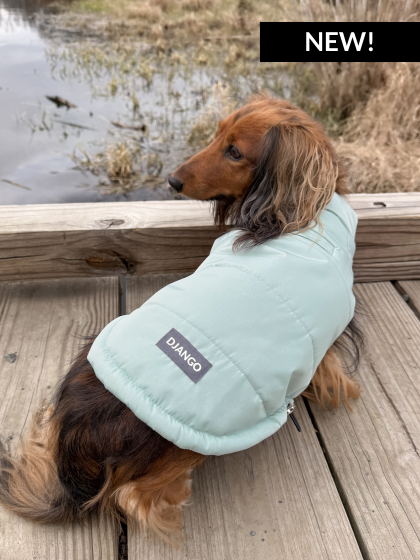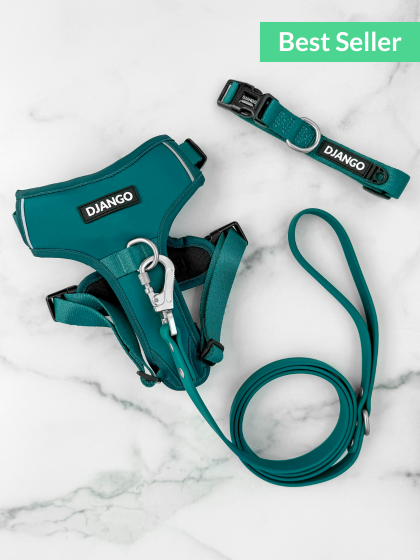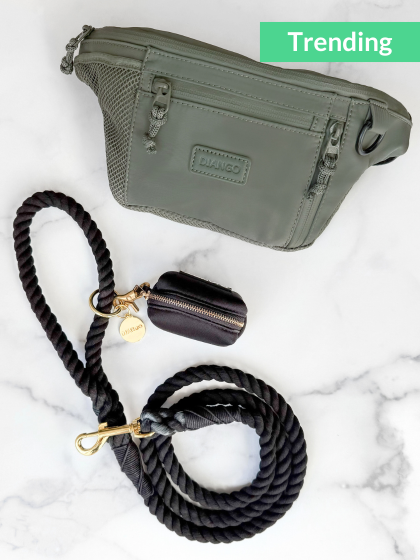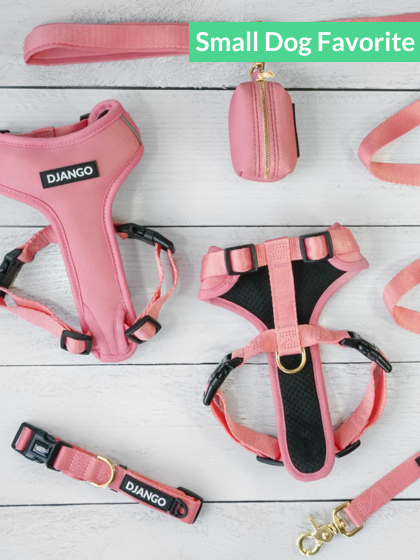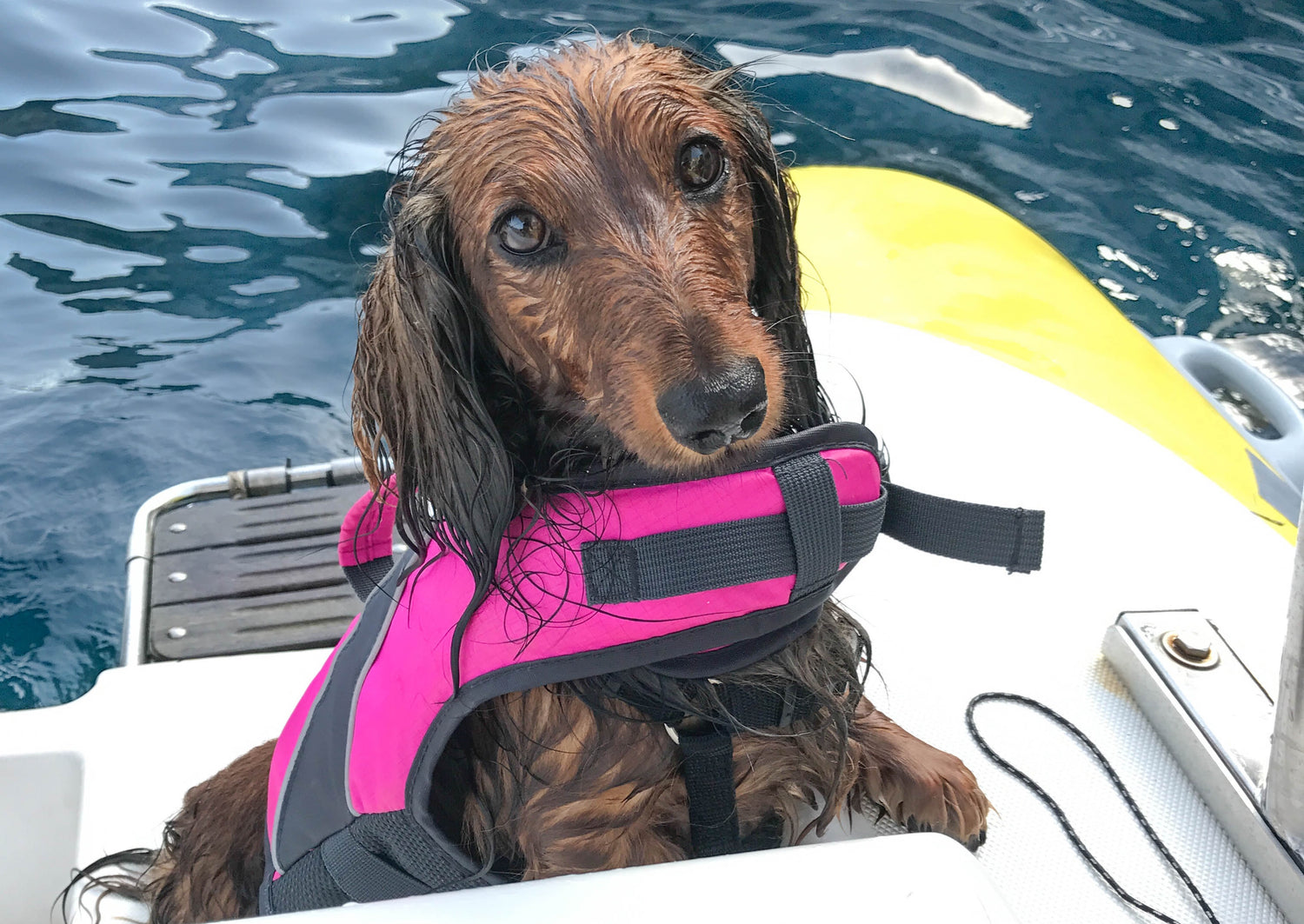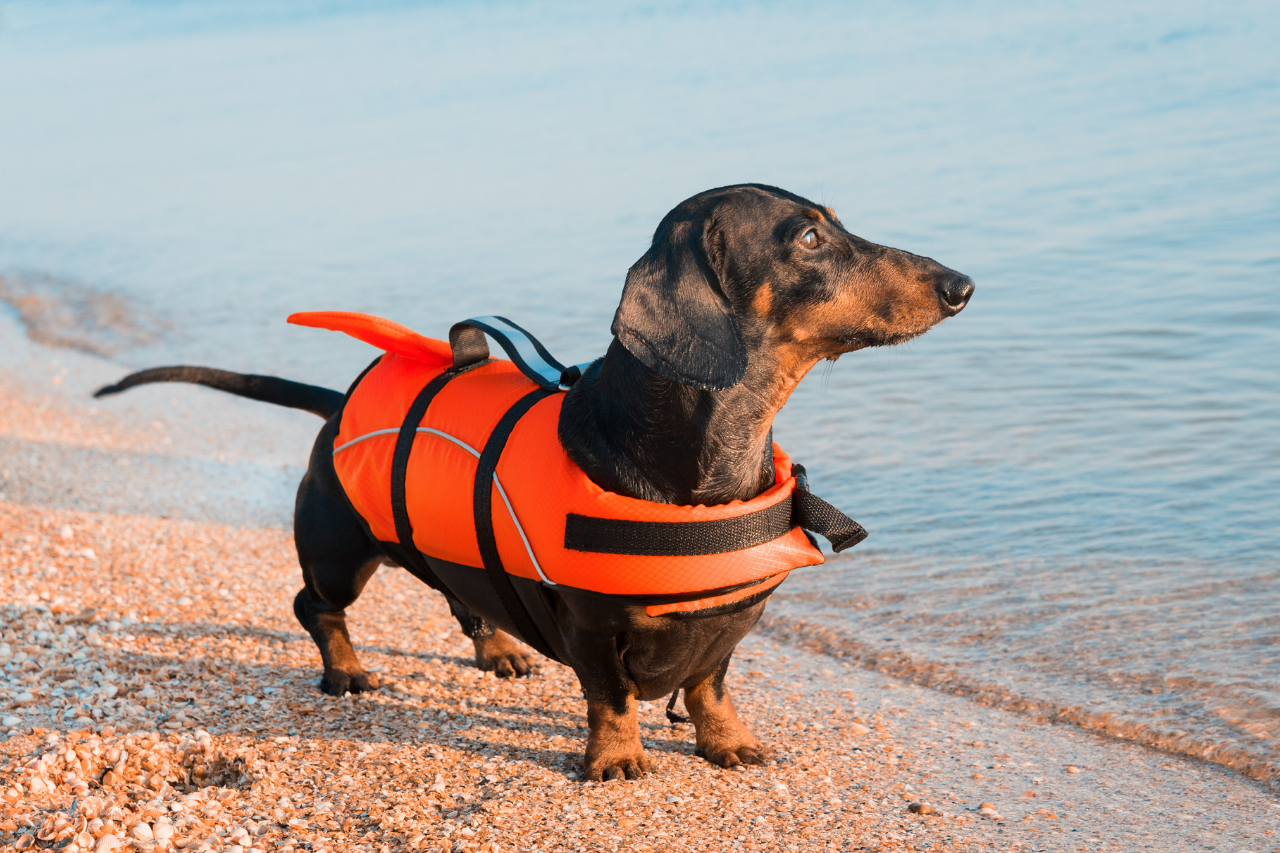Above: Our little man Django (@djangothegent) sporting his doggy life jacket while vacationing with us in Capri, Italy
When our long-haired dachshund Django was 8 months old, Mike and I (Steph) took him hiking at Bear Mountain, a state park an hour's drive north of New York City. Before heading home, we went for a walk around Hessian Lake's 1.4-mile trail loop. Django was off leash and running 10 feet ahead of us the whole time.
We were halfway around Hessian Lake when Django, who had never swum before, calmly walked into Hessian Lake. Mike and I watched with awe and amusement as Django swam out 15 feet, grabbed a stick in his mouth, and swam back to shore.
Since that hike at Hessian Lake, Django has swum countless times in the Atlantic and Pacific oceans. He has jumped off of a boat into the Mediterranean Sea, fetched sticks out of freezing cold glacier mountain streams in Oregon, and skillfully handled the choppy waters of Italy's Lake Como. Despite his long dachshund body and short, stubby legs, Django is a natural at swimming.
Although Django has proven himself capable in the water many times over, Mike and I still have him wear a doggy life vest for most water activities.
Does my dog need a life jacket?
Even if your dog is a strong swimmer, you should absolutely consider using a dog life jacket for most water activities. You know your dog best, but here are several instances where you should definitely throw a life jacket on your dog:
Do all dogs know how to swim?
No. Most dogs will start to "doggy paddle" when in water, but this does not mean they can swim or even stay afloat for more than a few seconds.
What are the top swimming dog breeds?
Many working dogs were bred to swim and retrieve game from the water. Generally speaking, skilled canine swimmers tend to be medium and large dogs with long, muscular legs and water-resistant coats. Some of the most popular 'water dogs' include the chesapeake bay retriever, english setter, golden retriever, irish setter, labrador retriever, newfoundland, portuguese water dog, and standard poodle. Fun fact? Poodles were originally bred in Germany as water retrievers, and the name poodle comes from the German word "pudel" meaning "to splash" in water.
What dog breeds cannot swim?
Although Django has proven to be quite the swimmer, dachshunds are one of the more well known breeds that often struggle in the water. Other dog breeds notorious for poor swimming skills are the basset hound, boxer, bulldog, frenchie, pekingese, pug, and boxer. Dogs that cannot swim often have one of these traits: (1) short, stubby legs (2) a large, heavy chest (3) a shortened or flat nose (a.k.a. brachycephalic breed).
Brachycephalic breeds, like frenchies and pugs, are at an anatomical disadvantage in the water. Because of their broad, flat faces, these dogs have a much more difficult time keeping their nose and mouth above water. Combine this difficulty with a heavier body, like bulldogs, and you can understand why some breeds are simply better left on dry land.
There are always exceptions to the rule, and you know your dog best. Play it safe, use a high quality dog life jacket if you have any doubt about your pup's swimming ability, and have fun in the water!
Below: Living the dream! Our little guy Django takes in the sights while boating around Capri Island with Mike and I in Italy.







